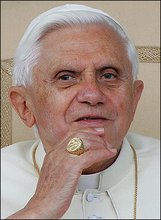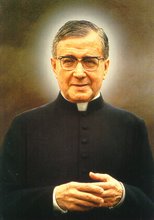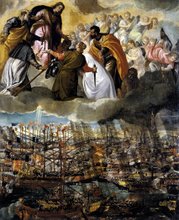
A couple of years ago I remember stating that one of my New Year resolutions was to "become more Pickwickian." Sadly, I have to report that has not occurred, at least as far as I am aware. However, I am becoming inspired once again, after reading, for the first time, G.K. Chesterton's "literary sketch,' (not biography) Charles Dickens. There is some beautiful writing in this book - my copy is a lovely, mouldy, Methuen & Co., Fourth Edition, dated January 1907. Chesterton truly captures the reason for Dickens success, which most of us only see now by watching the wonderful BBC adaptations (just saw Little Dorrit - wonderful!) He captures the fact, overlooked even by critics in the time of Dickens, of the folkloric/religious character of much of Dickens work and, of course, the fact that the characters are everlasting. A couple of beautiful quotes:
"To every man alive, one must hope, it has in some manner happened that he has talked with his more fascinating friends round a table on some night when all the numerous personalities unfolded themselves like great tropical flowers. All fell into their parts as in some delightful impromptu play. Every man was more himself than he had ever been in this vale of tears. Every man was a beautiful caricature of himself. The man who has known such nights will understand the exaggerations of "Pickwick." The man who has not known such nights will not enjoy "Pickwick" nor (I imagine) heaven. For, as I have said, Dickens is in this matter, close to popular religion, which is the ultimate and reliable religion. He conceives an endless joy; he conceives creatures as permanent as Puck or Pan - creatures whose will to live aeons upon aeons cannot satisfy. He is not come, as a writer, that his creatures may copy life and copy its narrowness; he is come that they may have life, and that they may have it more abundantly. It is absurd indeed that Christians should be called the enemies of life because they wish life to last forever; it is more absurd still to call the old comic writers dull because they wished their unchanging characters to last forever. Both popular religion, with its endless joys, and the old comic story, with its endless jokes, have in our time faded together. We are too weak to desire that undying vigour. We believe that you can have too much of a good thing - a blasphemous belief, which at one blow wrecks all the heavens that men have hoped for. The grand old defiers of God were not afraid of an eternity of torment. We have come to be afraid of an eternity of joy...........he is there, as I have said, to exaggerate life in the direction of life. The spirit he at bottom celebrates is that of two friends drinking wine together and talking through the night. But for him they are two deathless friends talking through an endless night and pouring wine from an inexhaustible bottle."
"There are two rooted spiritual realities out which grow all kinds of democratic conception or sentiment of human equality. There are two things in which all men are manifestly and unmistakably equal. They are not equally clever or equally muscular or equally fat, as the sages of the modern reaction (with piercing insight) perceive. But this is a spiritual certainty, that all men are tragic. And this again, is an equally sublime spiritual certainty, that all men are comic. No special and private sorrow can be so dreadful as the fact of having to die. And no freak or deformity can be so funny as the mere fact of having two legs. Every man is important if he loses his life; and every man is funny if he loses his hat, and has to run after it. And the universal test everywhere of whether a thing is popular, of the people, is whether it employs vigorously these extremes of the tragic and the comic.............And all over the world, the folk literature, the popular literature, is the same. It consists of very dignified sorrow and very undignified fun. Its sad tales are of broken hearts; its happy tales are of broken heads."
G. K. Chesterton - Charles Dickens










1 comment:
Thank you for this! I have been re-reading Pickwick, and was cruising around the Internet, looking for insight into why I so love this book - and you provided it! I wish you continued joy with the Pickwickians!
Post a Comment